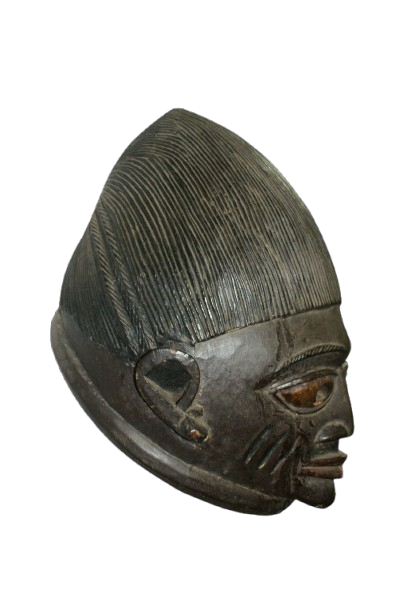

Advertisement

In many African cultures, masks are far more than decorations or costumes—they are powerful symbols of identity, spirituality, and tradition. For centuries, African masks have played a central role in rituals, storytelling, celebrations, and religious ceremonies.
Masks are often used in ceremonies that connect the human and spiritual worlds. In many communities, it is believed that when a person wears a mask, they are no longer just themselves—they become a spirit, ancestor, or supernatural being. The mask wearer may enter a trance-like state during rituals, dancing or speaking in ways believed to be guided by the spirit represented by the mask.
These ceremonies are typically held to:
Honor ancestors
Mark important life events (such as birth, initiation into adulthood, marriage, or death)
Call for rain or good harvests
Protect the community from harm
Promote healing and balance
For example, the Dogon people of Mali use elaborate masks in funeral rituals called Dama to guide the souls of the dead to the afterlife. Among the Yoruba of Nigeria, masks are used in Egungun festivals to honor the spirits of ancestors.
Masks also help preserve and express cultural heritage. Each ethnic group has its own distinct styles, symbols, and meanings behind the masks they create. The shapes, colors, and patterns often represent tribal identity, social roles, or historical events.
Through music, dance, and performance, masked ceremonies tell stories about the origins of the world, the struggles of heroes, the laws of society, and lessons about morality. These stories are passed from one generation to the next, keeping traditions alive.
African masks are known for their extraordinary craftsmanship and symbolic detail. They are usually made from natural materials such as wood, leather, fabric, beads, metal, and animal hair. The choice of materials and design often has spiritual or symbolic meaning. For instance:
Elongated faces may suggest wisdom or a connection to the divine.
Geometric patterns can represent harmony, protection, or spiritual order.
Animal features such as horns, beaks, or tusks may reflect qualities like strength, intelligence, or agility.
Making a mask is considered a sacred process. In many cultures, only specially trained artists—often part of religious or secret societies—are allowed to carve and paint them.
Beyond religion and art, masks can also reflect social and political power. Some are worn only by chiefs, elders, or members of secret societies to show authority, deliver justice, or make decisions. In some cases, masks are used to settle disputes, initiate new leaders, or educate young people about the laws and values of the community.
Today, African masks continue to be a source of cultural pride and identity. While some traditions are less commonly practiced due to modernization, many communities still hold masked ceremonies, especially during festivals and important communal events.
African masks have also had a huge influence on global art and design. Artists like Pablo Picasso and Henri Matisse were deeply inspired by the bold shapes and abstract styles of African masks, which helped shape the modern art movement in the 20th century.
Masks in Africa are not just artistic creations—they are deeply connected to spiritual beliefs, cultural identity, and social values. They help communities celebrate, teach, heal, and remember, playing a vital role in African life both in the past and today
Advertisement